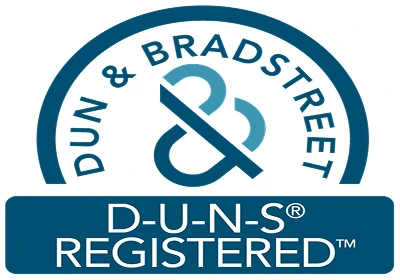Clinical Diagnostic Published Insights
Published Date : 09 Feb, 2026
Cannabis testing refers to the analytical testing of cannabis and cannabis-derived products, in order to ensure product quality and safety. It involves testing for cannabinoid profiles, pesticides, heavy metals, microbiological elements, and residual solvents. Strict ... View more
Published Date : 09 Feb, 2026
The Global Blood Cell Factors Market is estimated to be valued at USD 3.37 billion in 2025 and is expected to reach USD 4.31 billion by 2032, exhibiting a compound annual growth rate (CAGR) of 3.6% from 2025 to 2032. The global blo... View more
Published Date : 09 Feb, 2026
The field of esoteric testing has gained significant attention in recent years, as advancements in technology and medical research have allowed for the development of highly specialized diagnostic tests. Esoteric testing refers to laboratory tests that are not commonl... View more
Published Date : 09 Feb, 2026
Preimplantation genetic diagnosis (PGD) is an in-vitro fertilization procedure in which one or few cells are biopsied from an embryo before implantation and tested for genetic defects. PGD helps to identify genetic defects in embryos developed through IVF and assists ... View more
Published Date : 09 Feb, 2026
The Global Digital Slide Scanners Market is estimated to be valued at USD 170.7 Mn in 2025 and is expected to reach USD 397.1 Mn by 2032, exhibiting a compound annual growth rate (CAGR) of 12.82% from 2025 to 2032.... View more
Published Date : 09 Feb, 2026
The Global Human Metapneumovirus (hMPV) Therapeutics Market is estimated to be valued at USD 494.1 Mn in 2025 and is expected to reach USD 767.7 Mn by 2032, exhibiting a compound annual growth rate (CAGR) of 6.5% from... View more
Published Date : 09 Feb, 2026
The endoprosthesis market refers to the medical devices that are used to replace or support a damaged or diseased body part. These devices are designed to mimic the function of the natural body part and improve the quality of life for patients. Endoprosthesis de... View more
Published Date : 09 Feb, 2026
Anal fissure is a common medical condition that affects a significant number of individuals worldwide. It refers to a small tear or cut in the lining of the anus, resulting in discomfort, pain, and sometimes bleeding during bowel movements. While anal fissures can hea... View more
Published Date : 09 Feb, 2026
Hyperthermia cancer treatment is a novel therapeutic approach that utilizes heat to treat cancer cells. It involves raising the temperature of cancerous cells, either from external sources or by directing heat specifically to the tumor site. Hyperthermia can be used i... View more
Published Date : 09 Feb, 2026
Laboratory proficiency testing, often referred to as proficiency testing (PT) or interlaboratory comparison, is a quality assurance practice that is used in various fields, particularly in analytical and scientific laboratories. Its primary purpose is to assess and ve... View more
Published Date : 09 Feb, 2026
The sperm count test which is also known as a semen analysis, is a diagnostic tool that is used to assess the health and fertility potential of a man. It measures the quantity and quality of sperm present in a semen sample. This test plays a crucial role in diagnosing... View more
Published Date : 09 Feb, 2026
Fertility test can be used to detect ovulation and/or to diagnose infertility, an inability to reproduce by natural means. It is done by both men and women to assess their fertility and various conditions associated with it. Both men and women experience fertility pro... View more
Published Date : 09 Feb, 2026
Physician Office Diagnostic Market is estimated to be valued at USD 135.3 Bn in 2025 and is expected to reach USD 334.42 Bn in 2032, exhibiting a compound annual growth rate (CAGR) of 13.8% from 2025 to 2032.The physician office diagnostic market encompasses a wide range of medical devices, equipmen... View more
Published Date : 09 Feb, 2026
Lung cancer is a type of cancer that begins in the lungs, which are two spongy organs in chest that take in oxygen when a person inhale and release carbon dioxide when a person exhale. It is one of the most common cancers in the world and is a leading cause of cancer ... View more
Published Date : 09 Feb, 2026
The shigella test kit consists of tests and kits used to detect the presence of shigella bacteria in a clinical setting. The bacterium, if present in human stool, causes the disease shigellosis in patients, which is characterized by diarrheal symptoms, such as watery ... View more
Published Date : 09 Feb, 2026
Pcos Diagnostic Market is estimated to be valued at USD 3.9 Bn in 2025 and is expected to reach USD 5.49 Bn in 2032, exhibiting a compound annual growth rate (CAGR) of 5% from 2025 to 2032.The growth of the PCOS diagnostic market is primarily driven by several key factors. Firstly, there is an incre... View more
Published Date : 09 Feb, 2026
Inflammation of the digestive system is brought on by the chronic illness of Inflammatory bowel disease (IBD). White blood cells in the intestines release a protein called fecal calprotectin. It is high in IBD patients, making it a helpful biomarker for identifying an... View more
Published Date : 09 Feb, 2026
Outpatient Clinics Market is estimated to be valued at USD 102.81 Bn in 2025 and is expected to reach USD 150.55 Bn in 2032, exhibiting a compound annual growth rate (CAGR) of 5.6% from 2025 to 2032. These clinics cater to various medical specialties and offer services such as diagnostic tests, mino... View more





